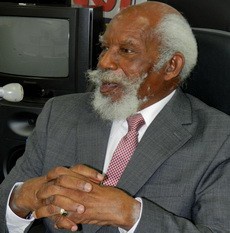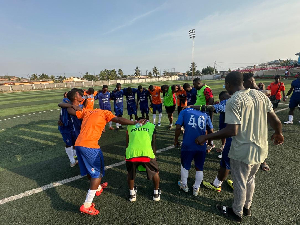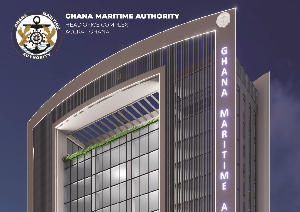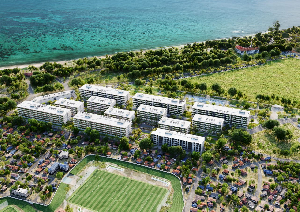A retired Supreme Court judge and first Electoral Commissioner of Ghana, Justice V.C.R.A.C Crabbe, has blamed the current electoral disputes on the decision by politicians to have both presidential and parliamentary elections concurrently.
He said the politicians for their own convenience chose December 7 to have both the presidential and parliamentary elections when the constitution of Ghana stipulated that the two elections should be held at different times.
“Elections of a President should be held, within four months before a President leaves office, and in respect of the general [Parliamentary] elections, thirty days before Parliament is dissolved by the constitution,” Justice Crabbe said on the maiden edition of Tarzan’s Take on Multi TV last Sunday.
He said if the letter and spirit of the constitution were respected “the problem we are going through would not have arisen.
“Those who are responsible for having the elections on the same day must be blamed.”
He was commenting on issues relating to the ongoing election petition in which three leading members of the NPP are challenging the results of the 2012 elections.
Whilst agreeing that holding the Presidential elections first before that of Parliamentary elections could influence the outcome of the latter, he was emphatic that the country is where it is today because of its decision to have both elections concurrently.
Gabriel Pwamang, a member of the Constitutional Review Commission, who was also on the show explained that it is extremely important to hold both elections on the same day, to avert a bandwagon effect which was experienced by the country in 1992.
He added that, the Commission during its review, decided ‘to amend the provision of the constitution which has to do with the period for the holding of Parliamentary elections and extend the time from the thirty days to the sixty days, that will enable the Electoral Commission to fix a date for the elections which will be in November’.
Mr Puamang said that holding elections in November will provide ample time for the Supreme Court to attend to petitions before the swearing in of a President and that “if these recommendations which have actually been accepted by the Government, are implemented, these problems will be dealt with in the fundamental way”.
In comparing the Kenyan experience to what is happening in Ghana, Dr Wereko Brobby, host of the show enquired from the panelists how Ghana’s electoral dispute can be resolved promptly at the court without sacrificing fairness to all parties.
He stated for-instance that in Kenya it must take the Kenyan court 14 days to rule on an election dispute but in Ghana the constitution only provides 21 days within which a petition can be filed and does not say how long it should it take for the dispute to be resolved.
In response to this question, Mr Puamang revealed that the provisions of the 1992 constitution in respect to Supreme Court rules on election petitions to challenge the President were published in 1996.
He said ‘these rules were reviewed by the Judiciary itself in 2008 and that was when the timeline for 21 days was given’.
He said the rules however say that once a petition has been filed and served on the respondent, the respondent has ten days within which to respond, after which the courts will fix a date and have a determination on the matter, fifteen days from the day of the final service.
Mr Puamang reiterated the need to balance fairness with expediency in dealing with such election petition matters.
General News of Tuesday, 23 April 2013
Source: Joy Online
Holding two election is the cause of current dispute - Justice Crabbe

Entertainment











